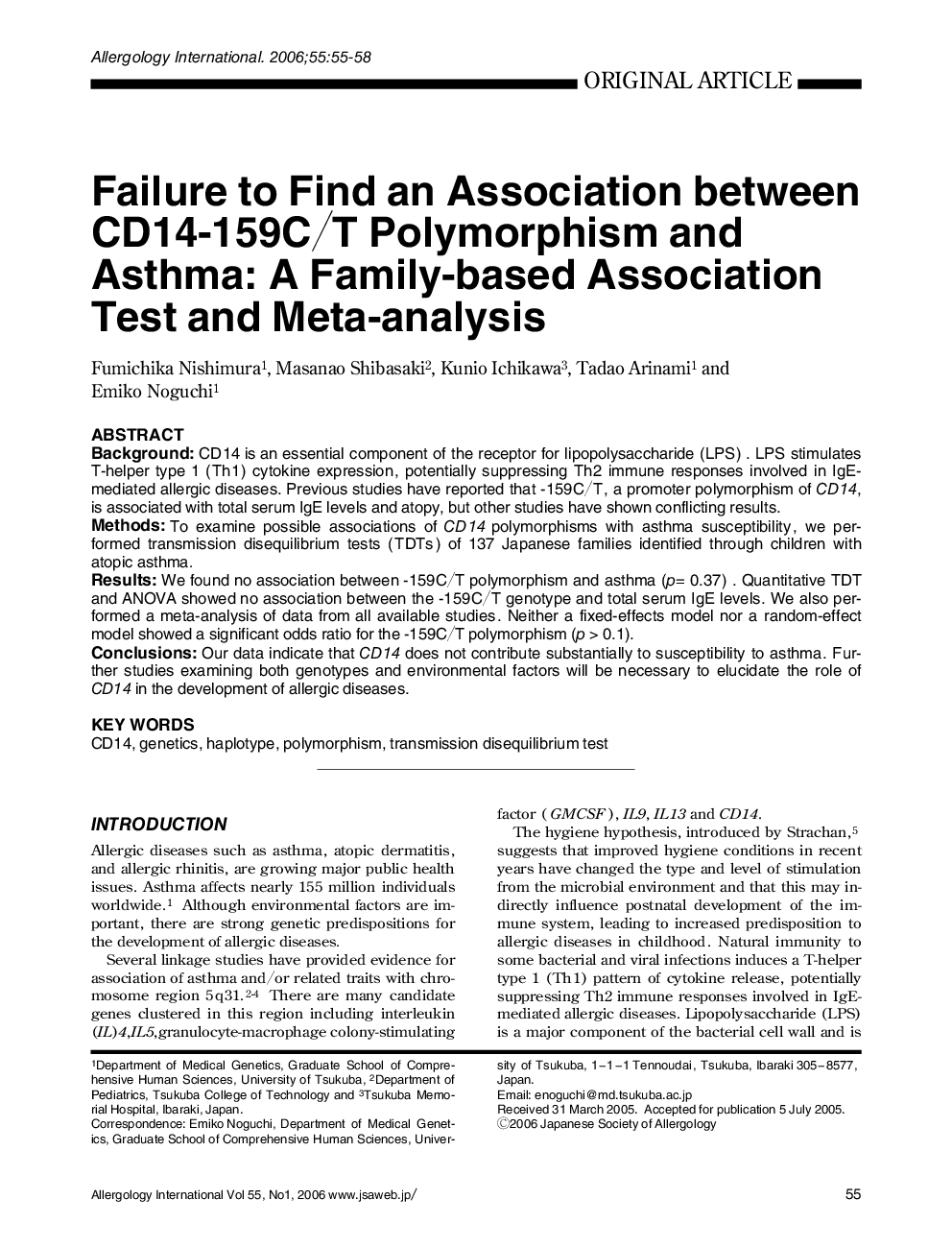| Article ID | Journal | Published Year | Pages | File Type |
|---|---|---|---|---|
| 3341241 | Allergology International | 2006 | 4 Pages |
ABSTRACTBackgroundCD14 is an essential component of the receptor for lipopolysaccharide (LPS). LPS stimulates T-helper type 1 (Th1) cytokine expression, potentially suppressing Th2 immune responses involved in IgE-mediated allergic diseases. Previous studies have reported that -159C/T, a promoter polymorphism of CD14, is associated with total serum IgE levels and atopy, but other studies have shown conflicting results.MethodsTo examine possible associations of CD14 polymorphisms with asthma susceptibility, we performed transmission disequilibrium tests (TDTs) of 137 Japanese families identified through children with atopic asthma.ResultsWe found no association between -159C/T polymorphism and asthma (p = 0.37). Quantitative TDT and ANOVA showed no association between the -159C/T genotype and total serum IgE levels. We also performed a meta-analysis of data from all available studies. Neither a fixed-effects model nor a random-effect model showed a significant odds ratio for the -159C/T polymorphism (p > 0.1).ConclusionsOur data indicate that CD14 does not contribute substantially to susceptibility to asthma. Further studies examining both genotypes and environmental factors will be necessary to elucidate the role of CD14 in the development of allergic diseases.
